They say that in life only two things are certain: death and income taxes. The only certainty brought by the arrival of the pandemic is that its long-term impact is uncertain.
Formula 1’s conviction that it exists in a bubble was rudely blown apart by the pathogen, exposing every failing and weakness in cruel fashion. From its gung-ho attitude in travelling to Melbourne despite advisories to the contrary to petty squabbling during recent teleconferences over DAS steering designs and rear brake ducts while the world around it is in crisis, F1 has occasionally acted rather strangely during the current crisis.It would not be an exaggeration to state this 70-year old sport could collapse should the current lockdowns of all but essential services continue throughout the year. For F1 is by nature a travelling sport, and most certainly not an essential activity.
F1’s survival hinges on the ability of its teams to weather the devastation wreaked by Covid-19, for they are the primary components in the sport’s supplier chain. F1’s commercial model is effectively a manufacturing operation: The commercial rights holder buys in ten raw products (the teams), then adds value by processing these ingredients into a sellable product (the show), which F1 wholesales to race promoters and broadcasters.
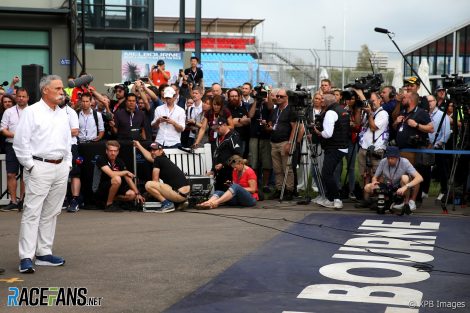
In the real world, the loss of a single supplier could bring the entire process to an immediate halt, and while there may be alternatives when times are good, choices invariably diminish during downturns. So it is with F1: the loss of a team or two for whatever reason is bearable during boom periods – they can be sold outright or in administration – but where to find a buyer or alternative in present circumstances?
Thus, it is critical that F1 preserves all ten teams, for the chances of new teams coming into a sport that is in regulatory and commercial disarray are highly unlikely and close to zero. Consider: after a five-hour teleconference on Tuesday a dozen of the sport’s top managers could not even agree when to hold the follow up call despite the urgent need to sort crucial issues such as budget cap levels and the regulation changes.
(For the record, the next call is due on Friday, but only after objections about working over Easter were swept aside.)
Advert | Become a RaceFans supporter and
The fundamental issue facing F1 is that all 10 teams operate to different business models, although these can be broadly distilled into five distinct categories:
- Car manufacturer-owned teams who produce their entire car (Mercedes, Ferrari, Renault)
- ‘Sisters’ who share technologies through common ownership (Red Bull, AlphaTauri), using Honda engines
- Teams that produce cars in-house, buying in engines only (McLaren, Williams)
- Teams that produce cars in-house, buying in complete power trains (Sauber, racing as Alfa Romeo)
- Satellite teams, who source permitted technologies from other teams (Haas, Racing Point)
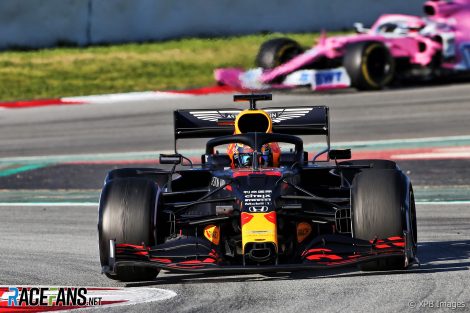
Simply put, there can be no “one-size fits all” quick-fix solution, yet that is precisely what F1 urgently requires and is attempting to achieve through endless teleconferences. The imperative is to provide immediate relief to cash-strapped teams, yet the talk is mainly of reducing budget caps in 2021, which, while having merit, will hardly help struggling outfits through the looming crisis …
Equally, corporate teams and major sponsors may not (yet?) be experiencing direct liquidity issues, but their boards may consider their respective F1 spends to be extravagances given the extent of the global crisis and its impact on their bottom lines, and thus may decide that exit is the best option.
There is a precedent: In 2008/9, as the then-global economic crisis bit, so a raft of motor manufacturers and corporates exited stage left. Honda was first to leave, followed in quick succession by BMW, Toyota and Renault, although last-named remained as engine supplier – a choice the company later admitted was not ideal. Honda, though, later returned as engine supplier, but is committed only to Red Bull to end-2021.
During a recent interview with RaceFans, McLaren Racing boss Zak Brown expressed his concerns that four – and possibly five – teams could be sidelined by the crisis, in turn plunging F1 into a crisis of unprecedented proportions.
“There are currently 10 teams, so 20 cars on the grid. After the 2008/9 financial crisis we were down to 18 cars, which I think is about the limit. Any more, and I think the sport faces substantial problems,” he said.
In 2019 constructors’ championship order, which teams are most at risk? We ranked them using the following scale:
1: Highly likely to stay
2: Likely to stay
3: 50/50 either way
4: Endangered
5: Critical
For detailed background on their financial situations ahead of the 2020 F1 season, read our exclusive team budget analyses here:
- The cost of F1 2019: Team budgets analysed – part one
- The cost of F1 2019: Team budgets analysed – part two
Mercedes
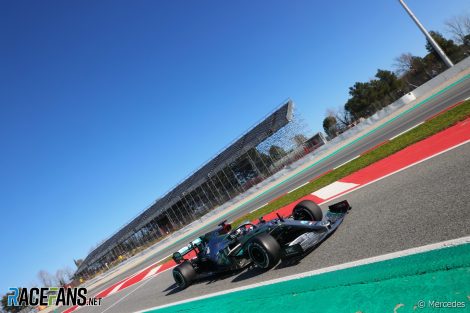
Against that background one wonders how he feels about Mercedes F1 Team arguing in favour of $150m budget caps – others are pushing for $125m – in order to save 300 jobs total. Equally, after winning six consecutive double titles and having motorsport boss Toto Wolff, whose contract expires this year, publicly committed to the team “for the short term”, the Daimler board must again be considering its options.
Score: 4 (remaining as engine supplier only: 3)
Ferrari
The brand’s share price (RACE) has held up well, having dipped only 30% on account of being rated a luxury rather than an automotive company, but continued participation depends upon two factors: F1 revenues, estimated at $200m last year, and sponsor income. Given that Liberty is unable to forecast 2020 income, in any event likely to be down 50% in the best-case scenario, there is cause for concern.
Add in that sponsors are likely to tighten belts, and for the first time in 70 years Ferrari needs to seriously consider its F1 future, particularly if up to five teams drop out, in turn reducing the credibility of its primary marketing platform. Ferrari could afford to race on regardless, but for what purpose if its major competitors drop out and revenues plummet? Thus it needs to consider the common good, not merely itself.
Score: 2
Red Bull
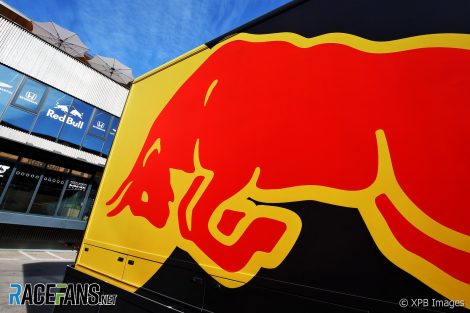
Equally, if Honda exits – it was first to do so in 2008, remember – then both teams face a major dilemma.
Score: 2 (if Honda leaves: 4)
McLaren
The continued participation of F1’s second-oldest team is far from secure: owned by a Middle Eastern fund and private investors, the holding company recently raised $350m in a shareholder cash call. Having moved from being a race team to an automotive and technology conglomerate, McLaren’s primary focus is no longer F1.
Indeed, its markets could be better served by IndyCar and WEC, both of which can be contested for fractions of F1 budgets. Brown is pushing hard for budget caps reductions, and unless these realise the shareholders could pull the plug on F1.
Score: 3
Renault
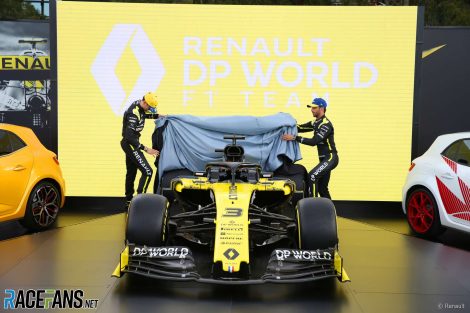
Should Renault remain, then a change of top team management seems certain, with the word in the paddock indicating a return by Frederic Vasseur, currently boss of Sauber. (see below)
Score: 4
AlphaTauri
Not much to add to the Red Bull narrative (above) save to question why Mateschitz would consider it necessary to maintain two teams, given that the main team provides the primary marketing platform for the brand, while AlphaTauri publicises his upmarket clothing brand and is unlikely to break even on that basis.
Score: 4 (if Honda exits: 5)
Racing Point
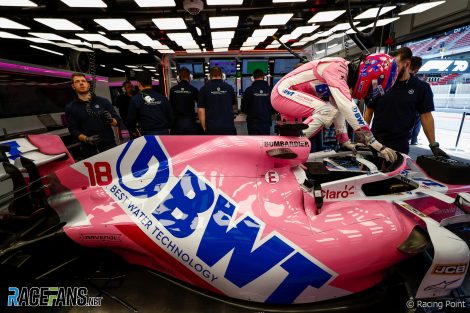
Thus, Racing Point’s future seems bright green, subject to affordability and a continued supply of Mercedes power trains and related technologies. Stroll will, though, need to keep his co-investors onboard and that may prove challenging if F1’s revenues dip substantially.
Score: 3
Alfa Romeo (Sauber)
The Swiss team was acquired by Swedish investors in lieu of loans, and the plan is to ramp up performance, then sell the team as a successful going concern. Considerable progress has been made under Vasseur, but the owners will surely consider their options if unsustainable budget caps are retained and Vasseur leaves, particularly as the Alfa Romeo branding deal expires at end-2021 and is unlikely to be renewed.
Score: 4
Haas
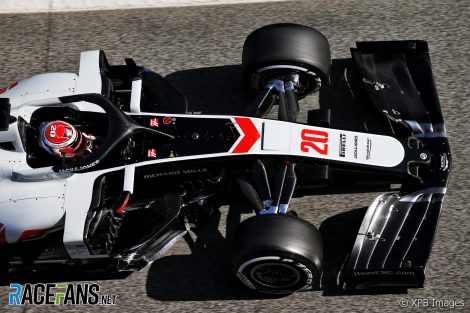
The team’s operation consists mainly of filing cabinets – being supply, design and manufacturing contracts with Ferrari and Dallara – while the team base in Banbury could readily be repurposed. Of all teams Haas could shut shop soonest, with minimal losses – which have arguably been covered by global brand exposure.
Score: 5
Williams
F1’s third-oldest team is also its most critical patient, having been reduced to survival mode by a series of poor performances and questionable decisions driven mainly by its listed status, which requires it to prioritise profit ahead of long-term investment.
The company recorded another loss last year and was forced to sell a majority stake in its advanced technology division, so a prolonged Covid-19-induced hiatus could bring this proud operation to its knees unless F1 moves extremely fast to at least provide Williams with a fighting chance. In comparative terms, it is in intensive care and not yet on a ventilator, but the prognosis is not good.
Score: 5
Overall
Our analysis indicates we should be concerned about the futures of as many as half-a-dozen F1 teams. Reducing budget caps is a step in the right direction but, more than anything, F1 needs to find ways of saving money immediately, not at the end of 2021; of extending a hand to needy teams.
Building ventilators and respirators is a wonderful initiative. But much more needs to be done internally, using the same spirited co-operation.
The future of F1 currently rests in the hands of a dozen people – FIA, F1 and ten team bosses – and unless they all pull together in the right direction they collectively deserve the full blame if this 70-year-old institution so beloved by millions of fans across the globe collapses into a worthless heap.
That is another certainty.
RacingLines
- The year of sprints, ‘the show’ – and rising stock: A political review of the 2021 F1 season
- The problems of perception the FIA must address after the Abu Dhabi row
- Why the budget cap could be F1’s next battleground between Mercedes and Red Bull
- Todt defied expectations as president – now he plans to “disappear” from FIA
- Sir Frank Williams: A personal appreciation of a true racer




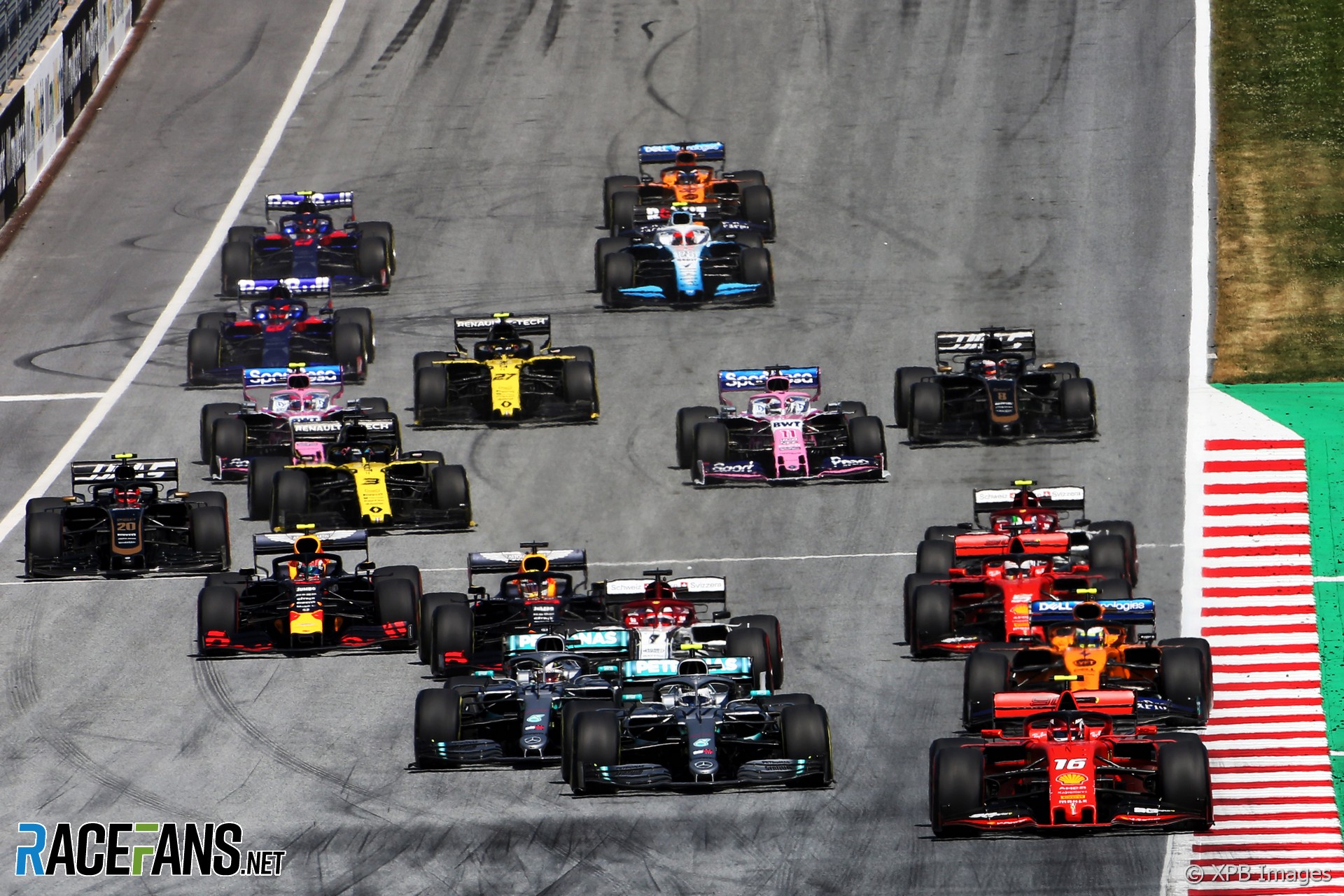
Fer no.65 (@fer-no65)
8th April 2020, 12:20
I think there’s another layer that affects the teams: sponsors. We also saw how depleted F1 cars liveries became in 2009… in an era like this, with the huge costs involved in running the team, if sponsors start to go, it’ll become harder for teams to survive, don’t you think?
Jamie B
8th April 2020, 23:26
@fer-no65 Well, yeah, Dieter literally acknowledges that in the article
Jere (@jerejj)
8th April 2020, 12:22
An interesting reading, and also the reasoning for each number-choice. I first thought about giving either 2 or 3 at least for Mercedes, but the paragraph shed enough light to justify the choice of 4.
MrBoerns (@mrboerns)
8th April 2020, 13:03
Ferrari not scoring a 1 is a yoke, though
@HoHum (@hohum)
8th April 2020, 13:28
If F1 dies the real culprit will be BCE. Properly managed F1 should have a cash holding to support the enterprise through this sort of a crisis, instead it has a huge debt.
Dieter Rencken (@dieterrencken)
8th April 2020, 13:43
Bernie is no angel, but he raised no debt off F1. Kirch Media did to buy the rights and CVC did to get fat fast, and Liberty did to buy from CVC. But Bernie raised no debt off F1 in his personal capacity.
supreme
8th April 2020, 16:46
That’s a small mitigation in my book Dieter. Those are all deals that Bernie brokered. Add in the one where FOM pinched enduring rights for pennies and that he then managed the show to maximise monetisation for whoever was tossing him coins.
@HoHum (@hohum)
8th April 2020, 22:10
Bernie took the accrued value of F1 to keep his daughters in $100+million homes in various countries and $10’s millions jewellery. The debt was accrued to pay Bernie for the right to continue the pillage of F1.
ColdFly (@)
9th April 2020, 8:04
Sorry @Dieterrencken, this is not correct.
Bernie borrowed astronomic amounts of money as Delta Topco (which owned SLEC/F1 rights) to pay dividends to the shareholders, including himself. None of this money was invested in the business as fixed (or even intangible) assets.
In the end, Liberty paid a lot of money (and borrowed against that) for a company with hardly any assets but with huge bank debts.
Jasper
8th April 2020, 13:45
Excellent article as always Dieter. What we all must remember is the recovery period is often worse than the initial shock to the system. The death of F1 is a very real possibility! What is most striking about your scores is you don’t even rate one team with 1 as being certain to stay!
I think there’s quite a few changes that need to be made immediately to save the sport:
1. Implement the cost cap as low as is realistically possible at the earliest possible date.
2. Ban Trackside Champagne Palace motorhomes. Leave the Circuit or F1 to provide the corporate hospitality.
3. Minimise travelling freight to the bare essentials.
4. Sadly cutting staff numbers is probably a must. Pitstops, cut the pit crew to one man per wheel.
5. Maybe cap the driver’s salary, or have F1 pay the drivers from one pot all the teams pay into. Have it be performance based. $185 million per year across 10 teams! You get a base wage and bonuses based on results. The other benefit of this is the drivers would then be contracted to F1 rather than the teams. So they would be obliged to take part in say the recent E-Sports events which is a great opportunity for F1 under the current crisis which is being poorly used. Another interesting element could be that being contracted to F1 the drivers could earn promotions to the top teams through their results. So maybe the driver line-ups could change each year at each team based purely on the previous years driver performance. At the start of the year, the car’s could be tested for their respective performance and ranked. And then for example Racefans 2019 top 4 were Hamilton, Verstappen, Sainz and Leclerc, so they would be drafted into the top 2 performing cars for that year. An interesting idea, would certainly add to the entertainment.
6. Maybe push the teams to produce other products with their resources. As this crisis has shown they can turn their hand to other things. Think the Mercedes AMG Project One Hypercar, the F1 team had a massive input into what is essentially a highly limited edition luxury product but will turnover $748 million from those sales.
Please feel free to add any suggestions… Some of these ideas are probably far-fetched but time will tell.
I think Liberty and Ross Brawn need to take full control of this situation and implement the rules and changes that need to be made. There’s only 2 outcomes really, the teams either don’t like the rules and walk, or fight tooth and nail to keep what’s unsustainable and collapse anyway. F1 has a nasty habit of shooting itself in the foot!
bosyber (@bosyber)
10th April 2020, 14:28
Interesting response to a great article Jasper; I feel I disagree with (the reachability of )some points, but they are well made and I do agree that it is likely F1 will have to make big changes. Also, it might then come out stronger, though leaner.
Adam (@rocketpanda)
8th April 2020, 14:03
I’d be surprised if we come out of all of this with all the teams and manufacturers in place, and frankly even if we do I’d imagine there’s a strong chance of losing one or two within the next two years. Perhaps it sounds ridiculous but I wonder if the nature of F1 will be changed after all of this.
ColdFly (@)
8th April 2020, 14:30
Great article, @dieterrencken.
Scary to see how precarious the situation is of many teams.
PS I don’t see ‘Sisters’ as a separate category though. I’d add RBR to the (Williams/McLaren) pack and Alpha Tauri to the ‘satellite’ category.
Dieter Rencken (@dieterrencken)
8th April 2020, 14:49
The reason I have is that with ‘sisters’ the tech flows both ways, whereas satellite don’t feed the main team.
Euro Brun (@eurobrun)
8th April 2020, 14:46
Ironically I kinda feel like the least at risk is Racing Point due to the recent Aston Martin tie up.
I could see Red Bull being more endangered even if Honda wanted to stay, but more realistically I can see Mercedes scaling back to engine only, with the grid being powered by just them and Ferrari.
I feel the most important thing to do now is get F1 to a position where if any teams pull out, someone would be interested in taking them over (even if its someone like Mazepin), but that’s gonna need a lot of work on levelling the playing fields.
Thus might sound a bit dramatic, but I feel like F1 is never gonna be the same again… should it die now, or should it shamble on into future crisis and risk a slow and painful death?
Not George
8th April 2020, 17:58
Aston Martin is going to devour Stroll and his gang, as it has all of its previous owners. Look at Jac Nasser’s comment about creating a “green Ferrari” (a.k.a “British” Ferrari) using Jaguar. They lasted 5 years. Did 9/11 & Enron cause as much economic chaos as COVID-19? Stroll will find that a few folk might care about the backward James Bond association, but only briefly. Yay, a whole 6, non-points scoring starts in F1! Makes Andrea Moda look good.
I struggle to see Williams as a public firm: Jim Slater’s “The Zulu Principle” says avoid any family owned/controlled firm. Even Stelios has less control of easyJet than the Williams family have of the team. Aston Martin is the same: it’s inevitable that Stroll will own it outright shortly. No one in their right mind should buy shares in either.
Mark Webber’s book comment about Williams not being the team they were (even in 2005) just reinforces the opinion that they’re terminal. COVID-19 might just speed up their inevitable sale/end.
The public won’t stand for a bail out of elitist companies; F1’s re-purposing for ventilator manufacture might cause some to wonder why these highly intelligent folks have been wasting their time on making cars go round in circles for so long.
There is an existential threat to all motor sport, not just F1. Motor sport is disposable.
bosyber (@bosyber)
10th April 2020, 14:32
Interesting point Not George:
Though one could say that resistance to that first sentence fizzed out last time around, I’d hope we all, including financial institutions and politicians, learned from that. As for your 2nd sentence, well, I suppose that does open up a possible venue for where those people might find other employment (or found companies doing such consulting projects?)
Jamie B
8th April 2020, 23:40
@eurobrun The Aston Martin tie up appears better because it was announced recently, but in times like this decisions could be changed suddenly. Bear in mind Aston Martin have been not been doing well financially. Even if the team compete in 2021, they could decide to spend nothing preparing for the 2022 regs and withdraw altogether (assuming they don’t try to find a buyer)
Plus, it may also depend on external factors like Mercedes remaining to supply engines, which in turn could depend on, say, McLaren staying in F1
Phil Norman (@phil-f1-21)
8th April 2020, 14:47
The sport is needlessly expensive and unfair. Budget cuts need to be agreed asap. Liberty and FIA are trying to get the teams moving in the right direction but it all seems so slow.
F1 teams really need to consider the overall strength of the sport rather than their position relative to other teams. They have begun to do this but sooner or later the very expensive chickens were going to come home to roost. I think the COVID-19 crisis really may bring things to a head much sooner and action will need to be taken as a matter of urgency to save the sport. Or preserve as something worth following.
BasCB (@bascb)
8th April 2020, 15:15
Hm, I am not too sure it makes a lot of sense for Haas to close shop in 2020. If anything, I would expect them to try and sit out this year and use the car they have now to contest next year as well – possibly limiting the investment into the team or even starting to ramp down already during the season.
Why? Well, a running 2021 is the best opportunity of at least getting some exposure from the already sunk in investment into this year’s car.
Surely the engine manufacturers will have to give a discount on this years engine bills (or are they paying on a per unit basis, and using less units automatically means paying less?), and the travel cost for nor the cost for additional parts are going to be too high this year it seems.
Also, it might well be that by 2021 at least some parts of the world are investing again to set off losses of capacity (or jump into gaps caused by losses of production capacity with competitors), and it would be prudent to ride the PR for that for one more year on the investment already made.
Overall, it seems Dieter is presenting us a cautious view of what could happen if things go bad. I sure hope that things turn out to be a bit better. But it’s good to consider how not having a solid basis for operating a team (budget cap, stable base of income, maybe a franchise model?) is a huge risk for the sport.
Tricky (@tricky)
8th April 2020, 17:16
I think its a interesting question about the engine supply cost.
@dieterrencken how about an article on how power units are paid for and managed. For example, in a normal season, how many engines does a team have ready at the first race? Do suppliers keep a pool of additional spares i case any team runs out of parts, or are they all delivered up front? And how do the teams pay when they exceed the quota, or does the contract cover everything?
Not George
8th April 2020, 18:01
The sunk cost fallacy is well described in “Thinking Fast & Slow” by Daniel Kahneman.
Haas would probably have to sign a longer “Concorde” agreement. Everyone can leave, penalty free at the end of 2020, no?
BasCB (@bascb)
9th April 2020, 9:11
You are right about the contract issues “not George” that certainly is one issue. But it’S only paperwork and can be solved relatively easily if parties are willing to do so.
This is not a traditional situation here like what comes up with “sunk cost” all the time though.
They literally have a car sitting there that has never raced an inch and as is will certainly mean they can get through this season and through a large part of 2021 without too much need for further investment provided they agree on good limits on developing them through the season. The only questions are whether F1 does limit how much will have to be spent on that for next year and how much does Haas (as owner/business) figure to gain from a year of F1 exposal.
bosyber (@bosyber)
10th April 2020, 14:36
Good points I think @bascb, here the sunk cost isn’t a fallacy if the running cost can be kept low enough to take a bit of an upwards trajectory if F1, and the world, get through this crisis relatively okay – economies need restarting, that will cost, but there’s will and budget, so why not use that, rather than trying to sell off bits of a team that hasn’t raced in a year?
Aleš Norský (@gpfacts)
8th April 2020, 16:06
Classic @RacingLines article, well done as always. But hopefully the worst case scenario does not come…
Robert McKay
8th April 2020, 16:09
People are going to hate me for suggesting it, but if it’s really that bad, if we lost half the teams in quick succession, what happens after that?
If you only have 5 teams, say, even 3 car teams is still a thin grid.
Do we look at a situation where potentially we end up having “F1” in the future basically being a GP1 type spec series where all the cars are the same, just branded in the livery of the remaining teams plus a few F2 teams, just to dramatically cut the cost to tens of millions rather than hundreds of millions, give some sort of a product, and let the sport build back up to full factory manufacturers a few years down the line?
Or do you take what F1 teams you’ve got left and just stick the F2 field on the back to give the illusion of a full grid, a la WEC?
Potentially, maybe on the plus side, the coronavirus crisis will actually distill all the disparate business models outlined here into a much smaller number of them, and make the sport more sustainable in the long run. It’s been due a proper reckoning for a while, and maybe – albeit accidentally – the moment has arrived.
Sven (@crammond)
8th April 2020, 16:27
When manfacturers talk about the big costs of current egnines, most of that is development costs, right? Is there a way to scale down development while producing and selling the engines “as is” for any garagista who comes along and wants to race them?
If old teams are quitting, won’t F1 just have to scale down the requirements for applications of new teams until it is possible for Coloni and Andrea Moda to come back?
Motorracing started as soon as there were two cars on this planet, and people won’t forget what an open-wheeler looks like. People will race, and the fastest open-wheeler series, whatever it may look like, will be called F1. It’ll survive, it just may change its form again.
P.S.: Should Toro Rosso (or whatever it is called) really be closed and sold, I want whoever buys it to bring back the Minardi name.
BasCB (@bascb)
9th April 2020, 9:13
I think the cost of manufacturing them is actually a significant part of the engine cost @crammond. These engines are really still “prototype” units, with the incredibly small amount of production and they are complicated as well.
Duncan Idaho (@didaho)
8th April 2020, 16:59
Goos stuff @dieterrencken, will you eventually do an article on which tracks/promoters are at risk?
Pironi the Provocateur (@pironitheprovocateur)
8th April 2020, 17:37
If the world-wide situation doesn’t improve by the end of this month, I’m almost positive Haas and Renault will seriously question their presence in the sport (a huge shame, especially if we look at the promising young talents Renault’s got in their academy). Moreover, I see a question mark hanging above Toto Wolff whose departure might bring a huge change to the current Mercedes F1 team. The next couple of years will probably change F1 beyond recognition.
Jorge Lardone (@jorge-lardone)
8th April 2020, 20:21
If we think that this new virus is especially dangerous for people over 60 years old. and that Formula 1 is already 70, obviously the danger of its death is very true.
Hopefully doctors and scientists find a way for F1 to survive
Frasier (@frasier)
8th April 2020, 22:12
F1 started in a Europe devastated by WW2. It flourished because there are many who simply like to race and for this reason it will continue of course, as will a huge number of more routine enterprises, driven on by human ingenuity.
The world is divided into those who do, and those who look on and write about it in awe, or sometimes downright disbelief. Luckily for many currently perhaps needing vital equipment just to stay alive, F1 is a can-do community
Sensord4notbeingafanboi (@peartree)
8th April 2020, 23:59
Is this a game? Of course Merc is endangerous which is somehow worse than 50/50. Merc hasn’t got the biggest budget. Workforce in the UK is cheaper than 75cl of olive oil.
Now seriously, Merc might want to sell the team, they won’t however leave otherwise, winning isn’t that torturous.
Ferrari is f1 so that is a 1 and so is everyone else, all racing teams want to keep racing, sponsors do not, sponsor owned teams or “sole sponsor teams” could (in the event) try to sell and some “name” teams might just fold. In a sense I can only see one team actually leaving, closing all operations, disappear, and that is, ironically, Ferrari.
Jay Menon (@jaymenon10)
9th April 2020, 1:15
This situation may be good for certain F1 teams, should they survive.
As Dieter mentions, if Renault are to stay, the top management must change. Cyril is done, he needs to go. Bringing back Vassuer is probably a good idea, however, it did not work in the past, why should it work now?Why not promote Alan Permane to Team Principal? He knows the team inside out and certainly doesn’t lack any experience in leadership positions.
For Williams, this could finally be the juncture at which they will be forced (at gun point) to adapt or die. I’ve been saying for years, Williams are living in the past, while romantic, its basically brought them to their knees. You can’t operate like a top properly funded team, when you arent. Don’t blame the game, try to make the most of it. Sure, easier said than done.
BasCB (@bascb)
9th April 2020, 9:19
The last time they had Vesseur at Renault, he was running into conflict with the rest of the management who are still there. So if Cyril etc are out, that can give Vasseur the freedom to set his own course which he did not have before @jaymenon10
I guess with Renault the question is how much they value the potential exposure to regroup and get back into the market next year. In a sense the question for Haas is probably not very different.
Although he might jump ship anyway after 2021 if he can be convinced to see that year through (relatively little extra investment needed, budget caps might help stay halfway competative), building a completely new car for 2022 is probably not something Haas is all too keen on investing in right now.
Williams – I guess they will try to hold on as much as they can. But yeah, they really need to change things or will probably not make it.
jmlabareda
9th April 2020, 23:31
good article, great food for thought
I’d like to think there would be a buyer for some of the struggling operations, at the right price. In the recent past, it seems a bit of a 50-50 between closing down and rescuing. Certainly the Mercedes racing ops could be of interest to someone in case they quit (especially if an engine supply remains). Ditto for Red Bull, and a few of others.
i.e. we wouldn’t get 10-12 cars in a race, but the shape of the field could change considerably